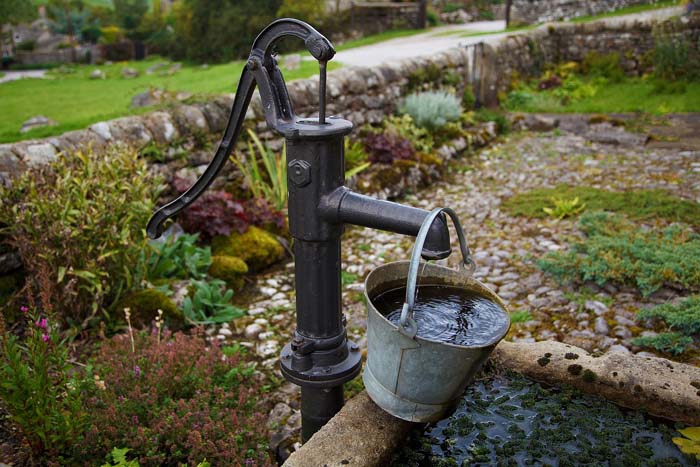
The smell of well water is unpleasant. Any time you pass by the garbage disposal, toilet, sink, or shower, you’ll want to put a tissue over your nose. Some frequent well water scents are due to the water source. They also require professional treatment, while others are easily fixable. If your well water has an unpleasant odor, read our how-to guide for the best ways to fix it before calling a professional.
Here are steps to fix well water that smells bad
Apply a chlorine bleach shock to your well. For a short-term fix, you can neutralize sulfur smells with hydrogen peroxide or chlorine bleach. For about a month or two, it will keep odors at bay.
- Ozone Gas:
Pricey, yet with the potential for great impact. Eradicate sulfur odors rapidly by injecting pressurized ozone gas.
- Air Charger Carbon Filter:
Put in a catalytic carbon filter for the air charger. While chemicals aren’t strictly necessary, the system can inject peroxide to extend the life of the catalytic carbon. There’s no need to change the filter cartridges. Carbon is simple to replace and has a long lifespan.
- Peroxide:
Replace the chlorine bleach with hydrogen peroxide in the same system as a chlorinator, then backwash the catalytic carbon filter. The carbon method is superior to chlorine in removing all traces of salt and other contaminants from the water.
- Air Compressor Tank Aeration System:
Under specific circumstances, this can remove odors by injecting a large volume of pressurized air.
- Chlorinator:
To ensure a steady supply of chlorine whenever the water is flowing, attach a chlorinator, or chlorine injector device, to your wellhead. You may eradicate odors continually and remove chlorine residue before entering your home. This is done by combining chlorination with an Air Charger self-cleaning backwash carbon filter. This will kill the sulfur bacteria that generate the stink.
Why does borehole water smell?
Even though iron and sulfur bacteria, among others, pose no health risks, they produce quite a stink. Warm water or water that has been sitting in pipes for a long time might make odors worse.
Sometimes, a one-time shock chlorination treatment can repair foul-smelling well water and keep it odor-free for weeks or months.
Simple steps to take to stop bore water from smelling
Inspect the odors of hot and cold water.
Finding out if the stench is coming from boiling water or both the hot and cold well water is the first step in figuring out what to do when the water smells like spoiled eggs. Fill a 5-gallon bucket or other container near the well with water using a tap or hose bib, and then observe for any smells.
Any gas with an odor similar to a “rotten egg” is hydrogen sulfide. The presence of manganese in water can cause an asphalt or oily odor. Sewage- or cucumber-like odors in water are typically caused by sulfur or iron bacteria. Turn on the hot water faucets one by one and see if you can detect any smell that isn’t there when the water is cold. The water heater is probably broken if the only thing you notice when you turn on the water is a smell.
The anode rod in a water heater can come into contact with sulfates in the water, sulfur, and iron bacteria. The result is hydrogen sulfide gas, which gives water its sour odor, like rotten eggs. When well water has a sulfuric odor, switching to an aluminum rod from an anode rod is a common solution.
A “water heater odor killer” filter screen is another option if this is inconvenient. Additionally, the sulfur odor in the water will be eliminated. The stink is immediately and safely eliminated by adding a little store-bought hydrogen peroxide to the water heater on a regular basis, and this device makes it easy to do just that.
Do a water test
Locating the smell’s source is the initial step in dealing with a water supply problem. Get in touch with your water utility if you’re using a public water system and are experiencing issues with odors in the cold water.
 In order to choose the best approach to treating the problem, it is crucial to do a general mineral water analysis if the source is from the well. A minimum of the following should be included in the test: pH, total dissolved solids, hardness, manganese, and iron. Tannin, hydrogen sulfide, and sulfate testing are also suggested.
In order to choose the best approach to treating the problem, it is crucial to do a general mineral water analysis if the source is from the well. A minimum of the following should be included in the test: pH, total dissolved solids, hardness, manganese, and iron. Tannin, hydrogen sulfide, and sulfate testing are also suggested.
Get the sample as close to the well as you can. These findings will help you choose the optimum water treatment method and system based on your water’s chemistry.
E-coli and total coliform tests should be conducted on your well water to identify potential health problems. A bacteriological, metal, and general mineral test should be performed on the water you intend to use for consumption by infants and kids.
Conclusion
Express Drainage Solutions provides various well systems that you can use to treat water. Our well water filters are the most effective, simple, and long-lasting. Our water treatment systems are customized to eliminate contaminants like nitrates, sediment, corrosion, bad taste, and odor in your drinking water. After reading this information on the best ways to fix odorous well water, we hope you will be more motivated to take action.
